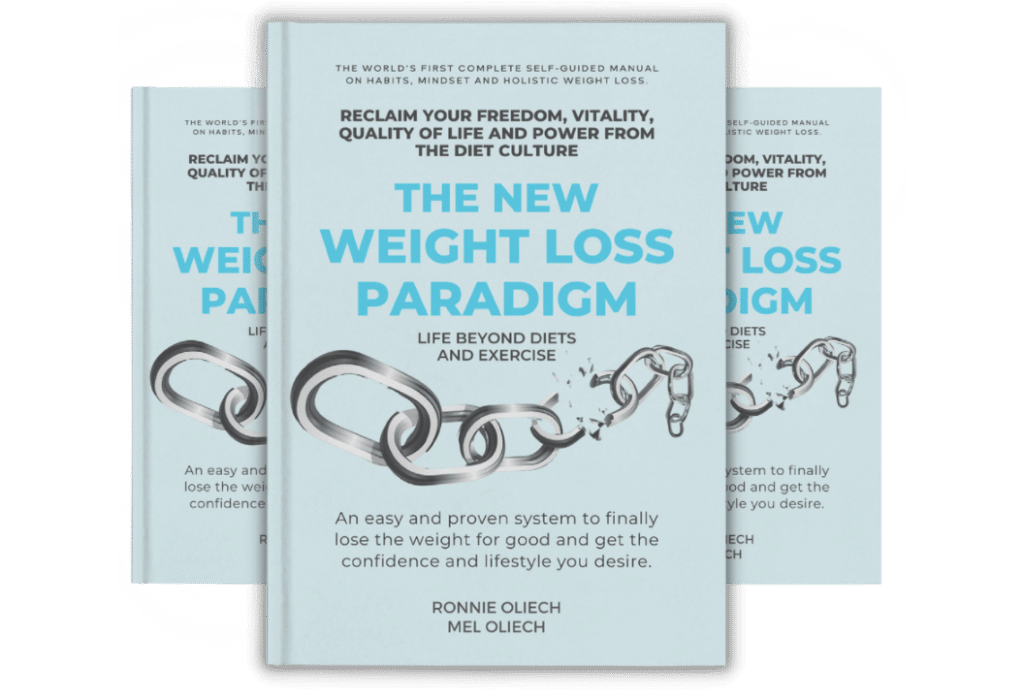Are you the kind of person who can get by on only a few hours sleep?
Or do you need a good 7-8 hours to feel human?
Many people wear their lack of sleep as a badge of honour. Unfortunately, if you fall into that category, you might also be wearing an extra few kilos that are caused by your poor sleep patterns.
How much sleep do you need?
Experts recommend that adults need anywhere from 7½ to 9 hours of sleep each night. Of course, this number may vary between individuals, but it’s certainly a lot more than the 4, 5 or 6 hours that a lot of people get.
The truth is that only 3% of the population may contain a gene that enables them to function at normal levels after having only 6 hours sleeps. That means the rest of us — 97% are living in a chronic sleep deficit.
We know that can leave you feeling tired, moody and rundown, but how does that impact your weight?
Reasons why poor sleep and weight loss is impossible
- Studies have shown that poor sleep is associated with weight gain and a higher likelihood of obesity in both adults and children.
- Studies have also shown that poor sleep can increase your appetite. This is due to two hunger hormones called ghrelin and leptin, that regulate hunger and fullness. Ghrelin signals hunger to the brain, while leptin suppresses hunger and signals fullness to the brain. When you don’t get enough sleep, levels of ghrelin increase, while levels of leptin decrease.
- Sleep deprivation dulls activity in the front part of your brain which is in charge of decision-making and self-control. So, lack of sleep actually makes it harder for you to make healthy choices and resist tempting food. Poor sleep has been linked to increased intake in foods that are high in calories, fats and carbohydrates.
- You’re likely to consume more calories when you don’t get enough sleep. Researchers aren’t exactly sure why this is — whether it’s related to the hormone levels, increased appetite and poor self-control mentioned above, or whether it’s because we’re simply awake longer and we have more opportunities for eating.
- Not getting enough sleep may also lower your resting metabolic rate — the number of calories you burn when your body is at rest. In addition, poor sleep can cause muscle loss, and muscle mass is the biggest influence on your metabolism.
- Getting enough sleep means you’ll feel ready to exercise and get more out of your session. You’ll also recover better, which means you’ll be ready for your next workout. Poor sleep will increase your risk of injury, will slow down your progress, and prevent you from recovering properly. Being tired also means you’re less likely to get up and move.
- Finally, sleep deprivation can also cause insulin resistance. Insulin is a hormone that helps move sugar from your bloodstream into your cells so it can be used as energy. Insulin resistance means more sugar remains in your bloodstream and your body produces more insulin to compensate. Extra insulin increases your appetite and signals your body to store more calories as fat. Insulin resistance is also a pre-cursor to developing diabetes. It may surprise and shock you to learn that research has shown that just one all-nighter can cause insulin resistance.
- Lack of sleep also leads to higher levels of stress. Stress can play absolute havoc with your weight loss efforts by increasing your appetite and cravings for unhealthy food; releasing cortisol, a hormone that promotes body fat; and causing inflammation that also makes it hard to lose weight.
Can you see why getting enough sleep is a big deal?
Signs you’re not getting enough sleep
You might feel that you’re among the lucky 3% who can get by on just 6 hours of sleep a night. However, if you notice any of the following, chances are you’re sleep deprived:
- feeling sleepy while driving, in meetings or other inappropriate places
- difficulty concentrating and learning new things
- feeling forgetful or ‘fuzzy’ in the head
- frequent illness or upper respiratory infections
- poor mood, and irritability
- lack of motivation
- increased appetite and carbohydrate cravings
- frequent injuries
- elevated resting heart rate
- high blood pressure.
Tips to improve your sleep and weight loss
Now you’re beginning to understand why sleep is important, you probably want to know how you can improve yours. Here are some top tops:
- Make sleep a priority and keep a regular schedule. Tracking your sleep may help with this.
- Go to bed and get up at the same time each day to build that routine
- Include a wind-down routine before bed. This can include soft music, a relaxing bath, herbal tea or reading
- Avoid all electronics for at least 20 minutes before bedtime
- Make sure your environment is conducive to good sleep (e.g. dark, quiet, not too hot or cold, supportive mattress)
Why don’t you get enough sleep?
While the strategies above may help, you really need to address the reasons you’re not getting to bed early enough to get your sleep. Common reasons include:
- Spending too much time on social media and other electronic devices. These can suck your time, and excite your brain, making it harder to fall asleep
- Spending your day doing things for everyone else, and finding the only time for you is late at night
- Stress or anxiety can prevent you from falling asleep
- Drinking at night might help you nod off but it will increase the chances of waking through the night
- Eating or bingeing after dinner can also interfere with your sleep.
At the end of the day, it’s usually our habits during the day, that influence our sleep and weight loss.
Better habits mean better sleep
If you can relate to any of the habits listed above, you might be interested in joining our Tribe. You see, we help our clients work on the habits that cause them to have poor sleep in the first place. Because unless you deal with the real reasons why sleep isn’t a priority, you’ll always continue to struggle with weight loss.


















